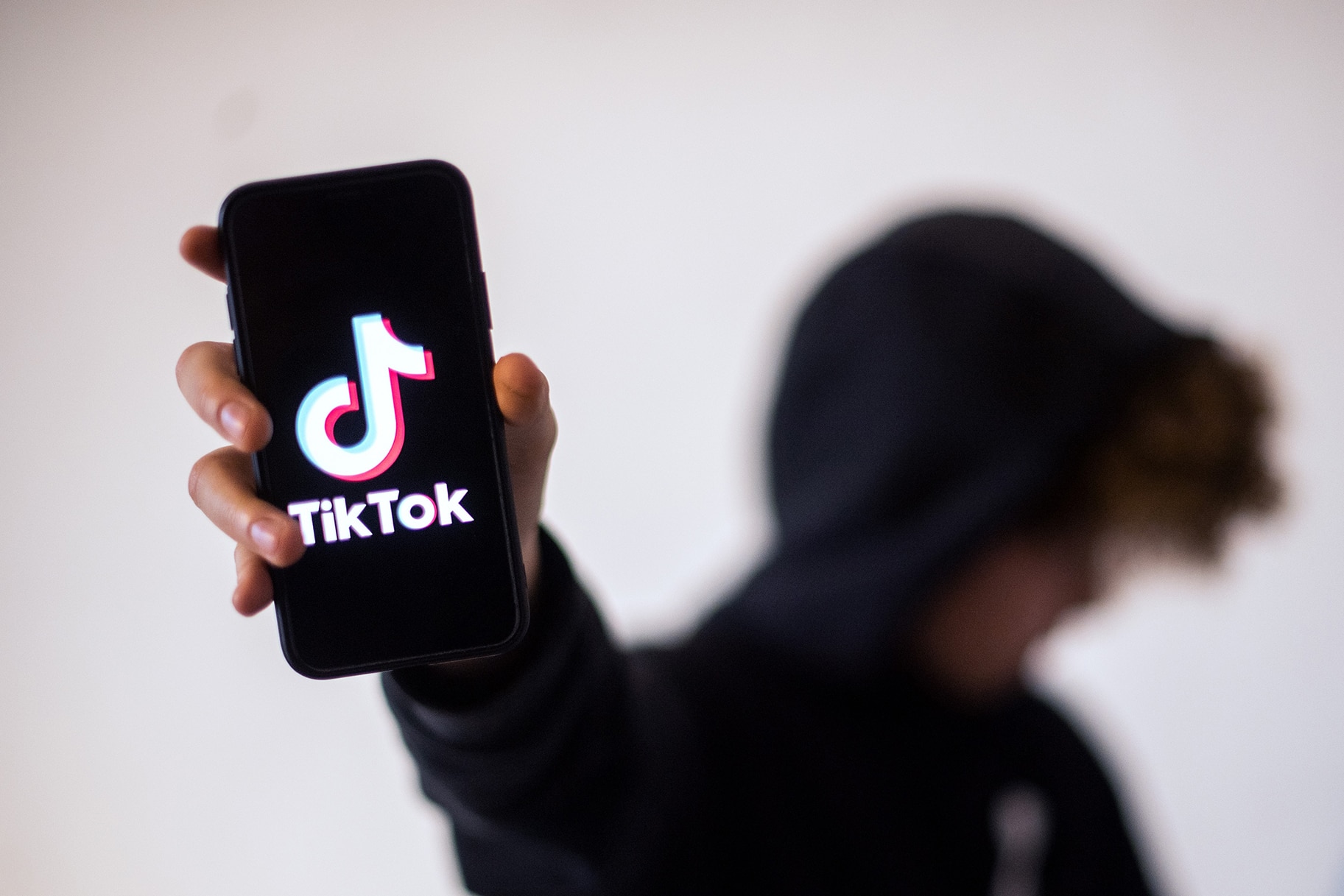Create a free profile to get unlimited access to exclusive videos, breaking news, sweepstakes, and more!
Incarcerated And Formerly Imprisoned Are Finding A Voice On TikTok To Shed Light On Life Behind Bars
"Baked into every viral post is a little bit of a redemption narrative: This is a place where people who did time can become influencers, both earning a living and shaping the way their followers think about prisons and the people inside them,” investigative journalist Keri Blakinger writes.

TikTok is shedding some light on life behind bars.
Viewers are getting an inside look at life inside America’s prisons—and how life changes once inmates get released—through viral #prisonlife posts, which feature everything from inmates talking about what landed them behind bars to exposing prison conditions and showcasing creative food tutorials.
Keri Blakinger, a formerly incarcerated person and investigative journalist, examined the role TikTok has in adding humanity and reducing the stigma many prisoners face after conviction in a column for The Marshall Project, a nonprofit media organization focusing on the U.S. criminal justice system.
The videos offer a brief glimpse at life behind prison walls by inmates who use contraband cellphones to capture their everyday reality, or former inmates who take to the social media outlet after serving their time to answer questions about prison life or share the struggles and joys of acclimating back into society.
In one viral post with more than 11 million views, Tayler Arrington addresses how women handle getting their periods, telling viewers in the 59-second clip that when you’re in county jail “they don’t sell tampons—you have to make them yourself.”
Another captures a heartwarming reunion between a man who served 21 years behind bars and the teacher inside who helped inspire him.
“I just got to my favorite teacher’s house when I was doing my 21-year prison bit. She is the bomb. She doesn’t know I am coming. Here we go, let’s surprise her,” Michael Lacey says, before capturing the woman’s surprise and joy as the pair embraced.
“Baked into every viral post is a little bit of a redemption narrative: This is a place where people who did time can become influencers, both earning a living and shaping the way their followers think about prisons and the people inside them,” Blakinger wrote in the column, also published by NBC News.
Lacey told Blakinger he’s found that prison TikTok has been “one of the most positive places on the app” and said he’s received overwhelming support.
“People are just giving you a real-life example about what life looks like,” he said.
The ways people have chosen to use the social media app appears to be limited only by their own creativity. In Idaho, prisoners have turned to TikTok to record dating profiles, sharing their likes and why they ended up behind bars, according to KBOI-TV.
“I am 30 years old, currently incarcerated, I’m sending this video in hopes to find someone who wants to talk,” one woman said.
In Florida, inmate Keiko Kopp used a video kiosk within Lowell Correctional Institution to record videos she sent to her mom, who uploaded the videos to TikTok on her behalf, WFTS reported in 2021. She often discussed the conditions within the state’s largest women’s prison and shared her own personal accounts.
“Hey guys this is Kay coming from Lowell CI, where the prison news of the day is as dark as black coffee,” Kopp, who was serving a three-year sentence for trafficking drugs, would say at the start each video update.
Kopp reported on things such as an overdose in prison, a woman who was “brutally attacked” by another woman, and a woman in her 90s who was “completely blind” with dementia and “helpless” behind bars.
During COVID, Kopp called out what she saw as a lack of resources and poor conditions for those behind bars.
“We have no way to social distance. We have no access to medicine. So please just keep us in your prayers,” she said at the time.
Her mother later got a letter from the prison saying the videos violated the Department of Corrections policy and asked her to stop posting them; Kopp alleged administrators “threatened” her with confinement for producing the videos.
In response, the Department of Corrections said inmates are given multiple ways to communicate with others but that it was a violation of their process to conduct business behind bars.
“The Florida Department of Corrections is committed to providing for the safety and wellbeing of all inmates in FDC’s custody,” they added in another statement to the media outlet, in response to some of the allegations Kopp made within the videos.
Producing the viral videos doesn’t come without its risk, particularly for those still behind bars. Cell phones are considered contraband within prison systems and prisoners can face losing visitation privileges, being sent to solitary confinement or even having time added on to their sentence for the violations.
But many inmates are willing to take the risk to connect with the outside world.
“People on the outside are seeing people on the inside as people, many times who are young, as people who are charismatic, as people who experience joy and pain and all of these same sentiments that we do every day,” Bianca Tylek, the founder and executive director of Worth Rises told Vice in 2020. “And I think that’s really, really critical.”






















